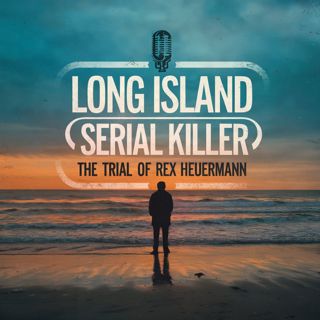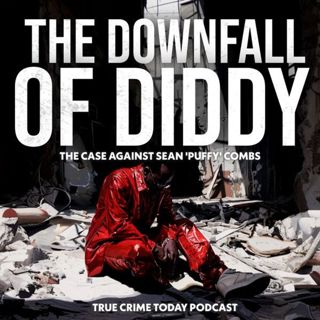
Inside Kohberger’s Last Power Play: Why He Won’t Pay the Families He Destroyed-WEEK IN REVIEW
There’s a kind of cruelty that doesn’t end with a conviction. It’s quieter — colder — and it shows up in the fine print of legal filings long after the headlines fade. Convicted killer Bryan Kohberger, now serving four consecutive life sentences for the murders of Kaylee Goncalves, Madison Mogen, Xana Kernodle, and Ethan Chapin, has found a new way to wound the families of his victims — by refusing to pay them the restitution the court ordered. In a stunning October filing, Kohberger’s defense argued he shouldn’t have to pay because the victims’ families received donations through GoFundMe. That’s right — he’s trying to use the kindness of strangers as a legal loophole to get out of paying what he owes. His lawyers claim the families “did not suffer an economic loss” because they were “extensively funded” through public generosity. It’s a move that feels less like a legal argument and more like one final act of control from a man who’s spent every step of this process refusing to take accountability. The same man who broke into 1122 King Road that November night and took four young lives is now arguing over dollars and decimals from his prison cell. But here’s the deeper truth: this isn’t about money — it’s about power. About the narcissistic offender’s need to stay relevant, to twist the knife one last time, even when the world’s stopped listening. The Goncalves and Mogen families, who’ve already endured the unthinkable, are being forced to re-engage with a man who should’ve faded into the background of justice months ago. This episode of Hidden Killers breaks down the legal, psychological, and moral layers of Kohberger’s final insult — how it exposes the pathology of control, entitlement, and complete emotional detachment that’s defined him from the start. Because for Bryan Kohberger, the violence never really stopped. It just changed form. #BryanKohberger #IdahoMurders #HiddenKillers #TrueCrimePodcast #KayleeGoncalves #MadisonMogen #XanaKernodle #EthanChapin #CrimePsychology #JusticeForIdaho4 Want to comment and watch this podcast as a video? Check out our YouTube Channel. https://www.youtube.com/@hiddenkillerspod Instagram https://www.instagram.com/hiddenkillerspod/ Facebook https://www.facebook.com/hiddenkillerspod/ Tik-Tok https://www.tiktok.com/@hiddenkillerspod X Twitter https://x.com/tonybpod Listen Ad-Free On Apple Podcasts Here: https://podcasts.apple.com/us/podcast/true-crime-today-premium-plus-ad-free-advance-episode/id1705422872
25 Loka 18min

Not Fit for Trial — Is Brian Walshe Using Mental Health to Escape Accountability?-WEEK IN REVIEW
Brian Walshe was supposed to be on trial this week. But instead of jury selection and evidence, we got a mental health evaluation. Instead of justice for Ana Walshe, we got another delay. In this episode, we break down exactly how Brian Walshe — the Massachusetts man accused of murdering and dismembering his wife — managed to hit pause on his own trial just days before it was set to begin. The reason? His attorneys claim he’s no longer competent to stand trial, citing “mental and physical decline” following a jailhouse stabbing. But let’s look at the pattern here. This is the same man who told police his wife left for a work emergency — when he knew she hadn’t. The same man caught on surveillance buying mops, tarps, and cleaning supplies the day after she vanished. The same man who googled “how to dispose of a body” on a child’s iPad. And now he’s too unwell to face a jury? We’re digging into the forensic timeline, the legal maneuvers, and the broader psychology of a man who appears to be using the legal system not to defend himself — but to delay the inevitable. Because in a case without a body, time is leverage. Delay is strategy. And every new excuse buys him more of both. This isn’t just about a competency evaluation. It’s about a pattern of control, manipulation, and deflection — the same pattern that’s been playing out since the moment Ana disappeared. So how long can he run the clock? And will the system ever hold him to it? Watch now — because justice may be patient, but it doesn't wait forever. #AnaWalshe #BrianWalshe #TrueCrimePodcast #HiddenKillers #ForensicPsychology #MurderTrial #JusticeDelayed #CompetencyHearing #TrueCrimeCommunity #LegalStrategy Want to comment and watch this podcast as a video? Check out our YouTube Channel. https://www.youtube.com/@hiddenkillerspod Instagram https://www.instagram.com/hiddenkillerspod/ Facebook https://www.facebook.com/hiddenkillerspod/ Tik-Tok https://www.tiktok.com/@hiddenkillerspod X Twitter https://x.com/tonybpod Listen Ad-Free On Apple Podcasts Here: https://podcasts.apple.com/us/podcast/true-crime-today-premium-plus-ad-free-advance-episode/id1705422872
25 Loka 17min

Why Does the System Protect Predators? From John Wayne Gacy to Aaron Spencer’s Fight for Justice | Bob Motta Guest-WEEK IN REVIEW
There’s a disturbing pattern in America’s justice system — one that stretches from the past into the present. From the John Wayne Gacy investigation of the 1970s to Aaron Spencer’s prosecution today, we keep coming back to the same haunting question: Why does the system protect predators and punish those who fight them? In the first half of this episode, Defense Attorney Bob Motta — host of Defense Diaries and BURIED: Inside the John Wayne Gacy Investigation — takes us deep inside the newly remastered Gacy Tapes: never-before-heard recordings of Gacy speaking with his defense attorneys, including Bob’s own father. For decades, those tapes sat in darkness. Now, with enhanced audio and new detective interviews, BURIED exposes how the Gacy investigation really unfolded — revealing police shortcuts, ignored victims, and the desperation that finally cracked the case. It’s a chilling reminder of how often the system gets it wrong — even when it’s trying to get it right. Then, in the second half, we shift to Lonoke County, Arkansas, where a father named Aaron Spencer is facing second-degree murder charges after allegedly shooting a known predator he found with his 14-year-old daughter. The twist? Spencer is now running for sheriff — against the very department that arrested him. His slogan: “Restoring Trust.” To some, he’s a hero. To others, a vigilante. But to many, he’s proof that faith in law enforcement has been replaced by something darker — a belief that justice only comes when you take it into your own hands. From Gacy’s crawl space to Arkansas courtrooms, this is the connective tissue of true crime: the failure of systems built to protect us, and the people forced to fill the gaps. Hosted by Tony Brueski | Guest: Bob Motta (Defense Diaries, BURIED) Subscribe for more true-crime conversations that challenge the system — and the stories we think we know. #JohnWayneGacy #AaronSpencer #BobMotta #DefenseDiaries #HiddenKillers #BuriedPodcast #JusticeSystem #TrueCrimePodcast #VigilanteJustice #TonyBrueski Want to comment and watch this podcast as a video? Check out our YouTube Channel. https://www.youtube.com/@hiddenkillerspod Instagram https://www.instagram.com/hiddenkillerspod/ Facebook https://www.facebook.com/hiddenkillerspod/ Tik-Tok https://www.tiktok.com/@hiddenkillerspod X Twitter https://x.com/tonybpod Listen Ad-Free On Apple Podcasts Here: https://podcasts.apple.com/us/podcast/true-crime-today-premium-plus-ad-free-advance-episode/id1705422872
25 Loka 1h 1min

Inside the Mind of Rex Heuermann: The Gilgo Beach Killer Psychology-WEEK IN REVIEW
He looked like the guy next door — an architect, a husband, a father. But prosecutors say Rex Heuermann was also the man behind the Gilgo Beach murders, one of the most disturbing serial-killer cases in recent memory. In this psychological deep dive, Hidden Killers host Tony Brueski takes you inside the mind of control, exploring how a man can design blueprints by day and allegedly engineer horror by night. Through the lens of behavioral science, Tony examines compartmentalization, high-functioning psychopathy, and sadistic dominance — the traits that allow someone to live a double life so convincingly it fools everyone around them. From the soundproof basement to the meticulous planning, Heuermann’s world wasn’t chaos — it was choreography. This episode unpacks how his architecture mirrored his pathology and why the façade of normalcy is often the perfect camouflage for the worst kind of predator. Because monsters don’t always hide in the dark. Sometimes they wave from the driveway. #RexHeuermann #GilgoBeach #HiddenKillers #TonyBrueski #TrueCrimePodcast #SerialKillerPsychology #CriminalMind #FBIProfile #LongIslandMurders #BehavioralAnalysis Want to comment and watch this podcast as a video? Check out our YouTube Channel. https://www.youtube.com/@hiddenkillerspod Instagram https://www.instagram.com/hiddenkillerspod/ Facebook https://www.facebook.com/hiddenkillerspod/ Tik-Tok https://www.tiktok.com/@hiddenkillerspod X Twitter https://x.com/tonybpod Listen Ad-Free On Apple Podcasts Here: https://podcasts.apple.com/us/podcast/true-crime-today-premium-plus-ad-free-advance-episode/id1705422872
25 Loka 15min

Growing Up Kohberger: The Family Behind the Killer-WEEK IN REVIEW
Before the flashing lights and the headlines, the Kohbergers were just a quiet Pennsylvania family. Then one December night, the world changed — and so did their last name. In this Hidden Killers special, Tony Brueski explores the human cost of infamy through the story “Growing Up Kohberger.” What happens when your sibling becomes the nation’s most hated man? What happens when your last name turns radioactive overnight? Through documented accounts, psychological research, and parallel stories from other families of killers, Tony examines what experts call courtesy stigma — the inherited guilt of proximity. He explores the moral injury of love and revulsion colliding, and the silent trauma of “ambiguous loss,” where the person you love is alive but gone forever. This isn’t about the crime — it’s about the quiet aftermath. A mother trembling in court. Sisters deciding whether to change their names. A family learning to breathe again in a world that won’t forget. Because the hardest sentence isn’t always served by the guilty. Sometimes it’s carried by the ones who have to keep living under the same name. #BryanKohberger #IdahoMurders #HiddenKillers #TrueCrime #TonyBrueski #KohbergerFamily #Psychology #CourtesyStigma #CriminalPsychology #MoscowIdaho Want to comment and watch this podcast as a video? Check out our YouTube Channel. https://www.youtube.com/@hiddenkillerspod Instagram https://www.instagram.com/hiddenkillerspod/ Facebook https://www.facebook.com/hiddenkillerspod/ Tik-Tok https://www.tiktok.com/@hiddenkillerspod X Twitter https://x.com/tonybpod Listen Ad-Free On Apple Podcasts Here: https://podcasts.apple.com/us/podcast/true-crime-today-premium-plus-ad-free-advance-episode/id1705422872
25 Loka 12min

What the PI Found After LAPD Left At D4VD Rental Home — A Shocking New Allegation-WEEK IN REVIEW
A private investigator’s shocking account is raising new questions in the ongoing investigation linked to musician D4vd and the death of Celeste Rivas Hernandez. The PI says that after LAPD executed a search warrant at a Hollywood Hills property, he entered and found what he describes as “sadistic plans” related to Celeste — items he claims were overlooked by investigators. LAPD has not commented publicly on the specifics, but the allegation has stirred public concern over evidence handling and procedural rigor. Tony Brueski speaks with retired FBI Special Agent Jennifer Coffindaffer, who explains how warrant searches are supposed to work, what chain of custody means in practice, and why investigators must confirm — or refute — these types of civilian claims with caution. Could a procedural lapse have real legal consequences later? And what responsibility does law enforcement have to publicly clarify when private claims go viral? Coffindaffer lays out the stakes clearly — reminding listeners that while accusations can spread fast, only verified evidence can bring justice. #D4vd #CelesteRivas #JenniferCoffindaffer #HiddenKillers #TonyBrueski #LAPD #TrueCrime #HollywoodHills #PrivateInvestigator #JusticeForCeleste Want to comment and watch this podcast as a video? Check out our YouTube Channel. https://www.youtube.com/@hiddenkillerspod Instagram https://www.instagram.com/hiddenkillerspod/ Facebook https://www.facebook.com/hiddenkillerspod/ Tik-Tok https://www.tiktok.com/@hiddenkillerspod X Twitter https://x.com/tonybpod Listen Ad-Free On Apple Podcasts Here: https://podcasts.apple.com/us/podcast/true-crime-today-premium-plus-ad-free-advance-episode/id1705422872
25 Loka 49min

Diddy’s Desperate Appeal: The Predator Who Can’t Stop Controlling
There’s a line I keep coming back to: “I don’t know anyone who defends predators, other than predators.” Sean “Diddy” Combs just filed his appeal — a desperate attempt to undo the 50-month federal sentence that ended his decades-long illusion of control. Convicted of violating the Mann Act for transporting women across state lines for prostitution, Combs isn’t claiming innocence. He’s arguing math. His lawyers say the judge used “acquitted conduct” to calculate the sentence — a technical loophole that might shave a few months off. But this isn’t about law. It’s about ego. The same need to control every narrative, every room, every person who ever said no. For a man who once sold invincibility as a brand, an appeal is just another way to pretend he still holds the power. The odds? Almost zero. Federal courts rarely overturn sentences like his. But while his lawyers argue decimal points and sentencing guidelines, the rest of the world remembers what really matters: the pattern of coercion, violence, and control that no appeal can erase. Some called it ambition. Others called it genius. But history will remember it for what it was — domination dressed as entertainment. Fifty months isn’t redemption. It’s barely acknowledgment. In this episode, we break down what this appeal actually means, what’s really behind it, and why it’s the final act of a man who still believes accountability is optional. Because the truth doesn’t need a new trial. And you can’t appeal your own nature. #Diddy #SeanCombs #HiddenKillers #TrueCrimePodcast #DiddyAppeal #PredatorAccountability #JusticeSystem #MannAct #CelebrityCrime #TonyBrueski Want to comment and watch this podcast as a video? Check out our YouTube Channel. https://www.youtube.com/@hiddenkillerspod Instagram https://www.instagram.com/hiddenkillerspod/ Facebook https://www.facebook.com/hiddenkillerspod/ Tik-Tok https://www.tiktok.com/@hiddenkillerspod X Twitter https://x.com/tonybpod Listen Ad-Free On Apple Podcasts Here: https://podcasts.apple.com/us/podcast/true-crime-today-premium-plus-ad-free-advance-episode/id1705422872
24 Loka 12min

Kada Scott’s Death & DA Larry Krasner’s Pattern of Protecting Violent Offenders
When 23-year-old Kada Scott vanished after her nursing-home shift, she did everything right. She reported harassment. She said she felt unsafe. Two weeks later, she was found in a shallow grave behind an abandoned Philadelphia school. The man charged with her kidnapping — Keon King — was no stranger to the Philadelphia District Attorney’s Office. Earlier this year, King had been arrested for stalking and strangling another woman. There was video evidence. There was opportunity. And yet, District Attorney Larry Krasner’s team dropped the case. Months later, Kada Scott was gone. Krasner admits, “We could have done better.” But that’s not accountability — that’s an obituary for justice. Under Larry Krasner’s leadership, Philadelphia’s conviction rate for violent crimes has plummeted to roughly 33 percent, according to The Philadelphia Inquirer. Officers call it a “revolving door.” Federal prosecutors have accused his office of leniency that costs lives. And the pattern keeps repeating: In 2019, Officer James O’Connor IV was shot and killed by a suspect whose earlier charges Krasner’s office had dropped. In 2020, U.S. Attorney William McSwain cited ten other cases where defendants given light treatment by Krasner went on to commit new violent crimes. Gun-crime prosecutions have collapsed even as shootings soar. Krasner’s defenders call it “reform.” But when entire neighborhoods live in fear, when families like the Scotts bury loved ones, that’s not reform — that’s failure disguised as progress. This isn’t about politics. It’s about competence, duty, and the lives lost because one office keeps choosing ideology over accountability. In this episode of Hidden Killers, Tony Brueski breaks down the numbers, the names, and the moral cost of a DA who promised fairness but delivered chaos. Because when justice becomes an experiment, real people become the test subjects — and Philadelphia keeps paying the price. 👉 Subscribe for ongoing coverage of the Kada Scott investigation, and new episodes exposing systemic failures inside America’s justice system. #KadaScott #LarryKrasner #PhiladelphiaCrime #HiddenKillers #TrueCrime #JusticeForKada #KeonKing #DistrictAttorney #SystemFailure #Accountability Want to comment and watch this podcast as a video? Check out our YouTube Channel. https://www.youtube.com/@hiddenkillerspod Instagram https://www.instagram.com/hiddenkillerspod/ Facebook https://www.facebook.com/hiddenkillerspod/ Tik-Tok https://www.tiktok.com/@hiddenkillerspod X Twitter https://x.com/tonybpod Listen Ad-Free On Apple Podcasts Here: https://podcasts.apple.com/us/podcast/true-crime-today-premium-plus-ad-free-advance-episode/id1705422872
24 Loka 10min





















